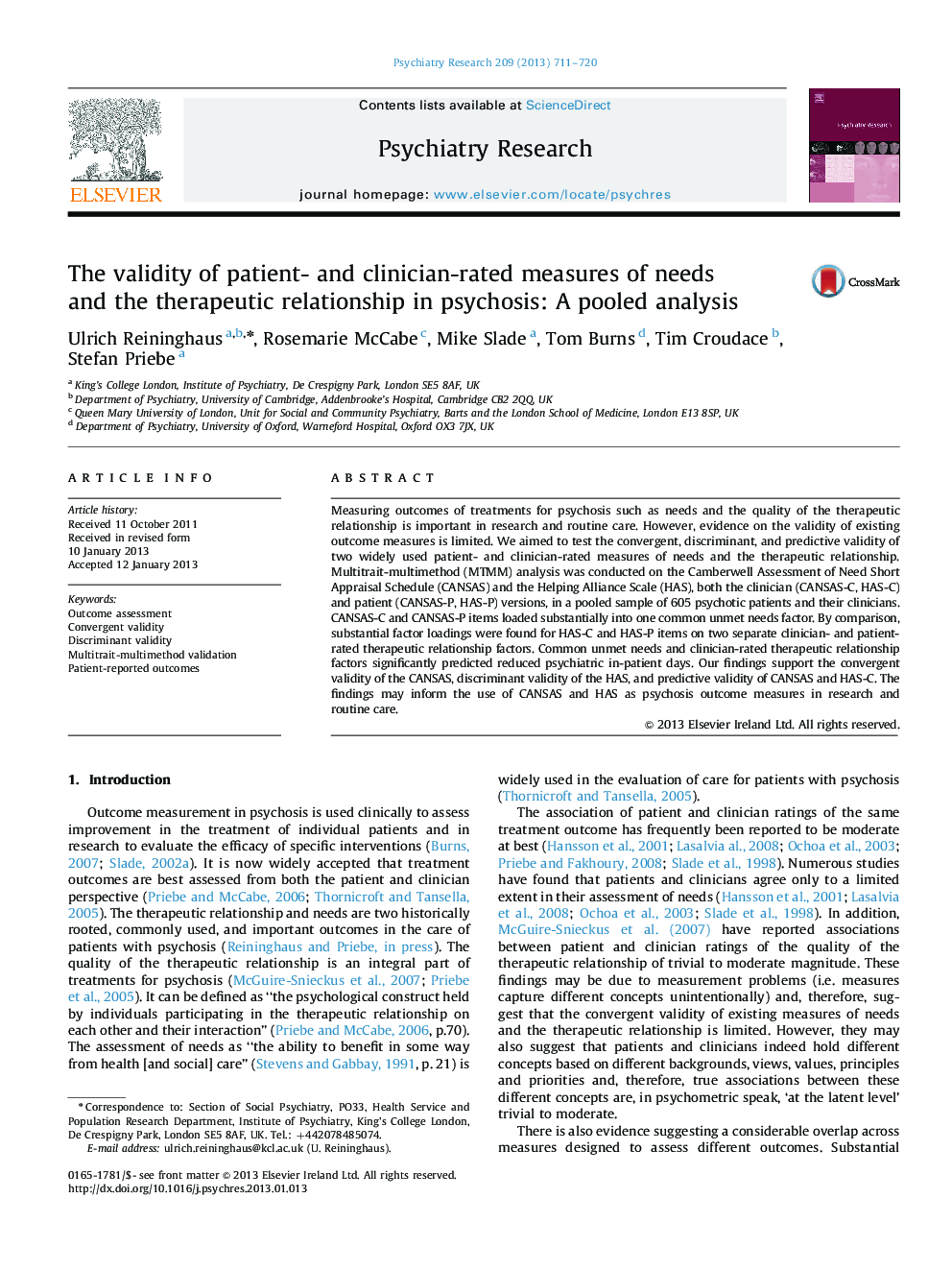| Article ID | Journal | Published Year | Pages | File Type |
|---|---|---|---|---|
| 333354 | Psychiatry Research | 2013 | 10 Pages |
Measuring outcomes of treatments for psychosis such as needs and the quality of the therapeutic relationship is important in research and routine care. However, evidence on the validity of existing outcome measures is limited. We aimed to test the convergent, discriminant, and predictive validity of two widely used patient- and clinician-rated measures of needs and the therapeutic relationship. Multitrait-multimethod (MTMM) analysis was conducted on the Camberwell Assessment of Need Short Appraisal Schedule (CANSAS) and the Helping Alliance Scale (HAS), both the clinician (CANSAS-C, HAS-C) and patient (CANSAS-P, HAS-P) versions, in a pooled sample of 605 psychotic patients and their clinicians. CANSAS-C and CANSAS-P items loaded substantially into one common unmet needs factor. By comparison, substantial factor loadings were found for HAS-C and HAS-P items on two separate clinician- and patient-rated therapeutic relationship factors. Common unmet needs and clinician-rated therapeutic relationship factors significantly predicted reduced psychiatric in-patient days. Our findings support the convergent validity of the CANSAS, discriminant validity of the HAS, and predictive validity of CANSAS and HAS-C. The findings may inform the use of CANSAS and HAS as psychosis outcome measures in research and routine care.
